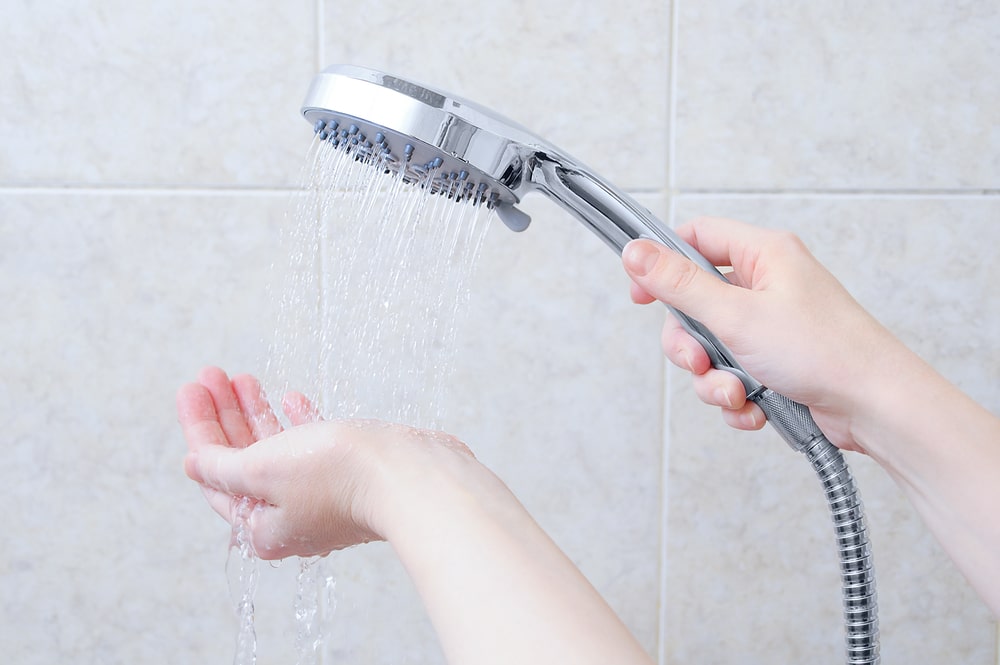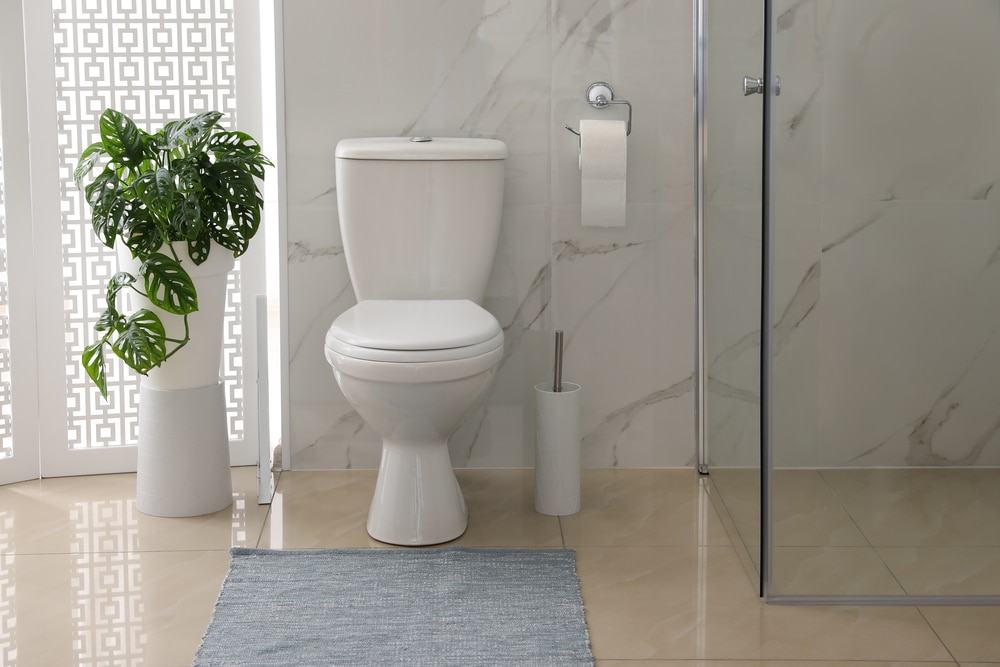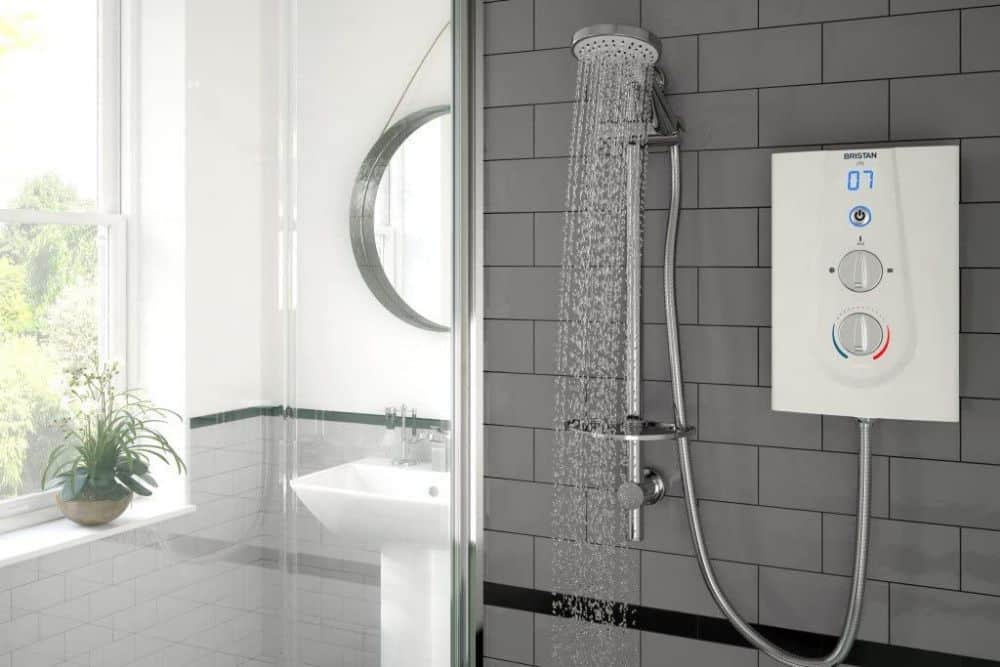Last Updated on
Electric showers offer a convenient way to enjoy hot water in the comfort of one’s own home. But, is it safe? Can electric showers electrocute you? It’s a fair query, worthy of an answer – which we’ll tackle here in this blog post. From understanding what puts us at risk for electrocution to exploring safety features built into electric shower systems, by the end of this article you’ll have all the answers you need. So let’s dive right in.
Table of Contents:
- Electric Showers: What You Need to Know
- Safety Features in Electric Showers
- FAQs in Relation to Can Electric Showers Electrocute You
- Conclusion
Electric Showers: What You Need to Know
Installing and maintaining electric showers can be a great way to enjoy hot water at home without needing a boiler, offering convenience and cost-effectiveness. But before you invest in one, it’s important to understand how they work and what safety features come with them.
Electric showers heat up cold water as it passes through the unit, meaning that they don’t require a separate hot water supply like traditional boilers do. This makes installation much easier and cheaper than installing a boiler system. The electric shower also has its own temperature control so you can adjust the temperature of the water according to your preference – perfect if you have young children or elderly people living in your home who may not be able to handle very hot temperatures.
It is imperative to comprehend the fundamentals of electric showers, yet being aware of the potential hazards linked with them is also critical. To ensure one’s safety and assurance, it is important to be cognizant of the possibility of electric shock when utilising an electric shower.
The Risk of Electrocution
Electric showers are a popular choice for many UK households, offering the convenience of an instant hot shower. Yet, as with any electrical device, the hazard of electric shock remains ever-present. This article will discuss the potential risks associated with electric showers and how to avoid them.

When installing an electric shower it’s important to use a qualified professional who can ensure that all wiring is done correctly and safely. You must also use a circuit breaker to protect against power surges or short circuits that could cause electrocution if not managed properly.
In addition, it’s important to make sure your shower has been fitted with the correct type of fuse as this will help prevent any shocks from occurring due to overloading on the circuit board or wires within the unit itself. You should also check that all cables are securely connected and insulated before using your electric shower for added safety measures.
Periodically examine your electric shower for any indications of deterioration, like frayed cords or visible wires which can be dangerous if neglected. If any abnormalities are perceived, an experienced professional should be sought to evaluate whether the necessary repairs have been done to keep your device safe and operating correctly.
Though electric showers may present a hazard, one can mitigate the risk of electrocution by being familiar with their safety elements and utilising them properly.
Safety Features in Electric Showers
They provide an efficient and cost-effective way to heat water, but they also come with certain risks. The potential for electric shock is a grave danger associated with electric showers, should the wiring or other components malfunction. Fortunately, there are safety features built into electric showers that help protect users from this danger.
One important feature is a residual current device (RCD). This device monitors the flow of electricity through the circuit and will shut off power if it detects any leakage or imbalance in current levels. It’s like having a tiny guardian angel watching over you while you take your shower.
Another important safety feature is an earth leakage circuit breaker (ELCB). This device works by monitoring voltage levels on both sides of the circuit and cutting off power when it detects any difference between them – which could indicate a fault on either side of the system. An ELCB can be especially useful if there’s ever been damage to your home’s electrical wiring due to flooding or other causes, as it will prevent potentially dangerous currents from entering your shower unit.
Finally, electric showers should have thermal cut-outs installed inside them too. These devices monitor temperatures within the unit and will switch off power automatically if they detect excessive heat – preventing overheating that could lead to fires or even explosions.
Ensure your electric shower is equipped with the necessary safety features; otherwise, you could be unwittingly exposing yourself to potential hazards.
FAQs in Relation to Can Electric Showers Electrocute You
Why do people not get electrocuted when using an electric shower?
Electric showers are designed with safety in mind. They have a number of features that prevent users from getting electrocuted, such as double insulation and an earth wire connection. The shower boasts a thermostat that monitors the water temperature, making sure it does not exceed safe levels. Finally, all electric showers must be installed by a qualified professional who will make sure that all wiring is done correctly and safely. With these measures in place, electric showers can be used without fear of electrocution.
What can go wrong with an electric shower?
Electric showers can malfunction due to a variety of reasons. One common issue is the build-up of limescale, which can cause blockages and reduce water pressure. Additionally, electric showers may suffer from power surges or electrical faults that could lead to overheating and damaged components. Finally, improper installation or maintenance can also lead to problems with an electric shower such as leaks or faulty wiring. To ensure your safety and avoid costly repairs, it’s important to have regular maintenance checks on your electric shower and take proper care when installing it in the first place.
Conclusion
In conclusion, electric showers can be a great addition to any home. However, it is important to understand the potential risks associated with them and take the necessary safety precautions. It is imperative to routinely inspect your electric shower for any deterioration or harm, in order to avert the risk of electrocution. By taking these simple steps, you can enjoy all the benefits of an electric shower without having to worry about whether or not can electric showers electrocute you.
Paul is the type of person who never met a problem he couldn’t fix. He can always be found tinkering with something in his house, even if it isn’t broken! His tips and tricks are often shared on our site. He’s the one you call when something breaks because he has been known to improvise fixes for everything from leaky faucets to malfunctioning dryers.



